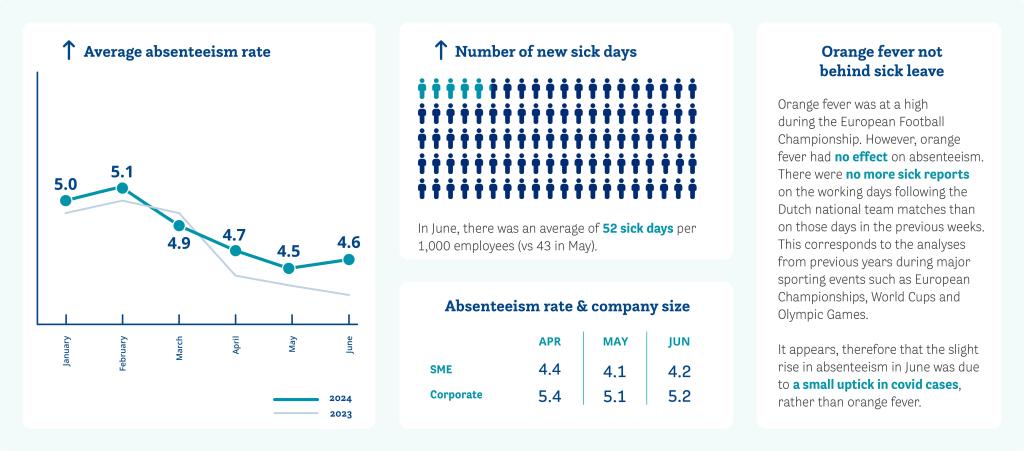Not orange fever, but flu-like symptoms behind the slight rise in sick leave

Increase in flu-like symptoms
In June 2024, the number of sick leave notifications was at 52 per 1,000 employees. A month earlier, the total stood at 43. This increase was mainly due to more people experiencing flu-like symptoms. This increase coincides with a rise in the number of covid particles in the wastewater measurements taken by the Dutch National Institute for Public Health and the Environment (RIVM). “We have observed that these are mostly short-term, mild complaints,” explains Jurriaan Penders, Occupational Physician and Director of Medical Affairs at HumanCapitalCare. “Most employees are able to return to work as normal within a few days.”
Orange fever not behind sick leave
During the European Football Championship over the past few weeks, a considerable bout of orange fever had flared up in the run-up to the semi-finals. However, this orange fever did not have any effect on the absenteeism rate. There were no more sick reports at ArboNed and HumanCapitalCare on the working days following the Dutch national team matches than on those days in the previous weeks. This corresponds to the analyses conducted by health and safety service providers in previous years during major sporting events, such as European Championships, World Cups and Olympic Games. It appears, therefore that absenteeism has risen slightly due to a small uptick in covid rather than orange fever.
Absenteeism in the second quarter
Now that the figures for the month of June are known, ArboNed and HumanCapitalCare are reviewing absenteeism in the second quarter of 2024. In the second quarter, the absenteeism rate was at 4.6%. This was down from the first quarter (5.1%). But this does put the absenteeism rate higher than in the same period last year (4.3%). This increase was seen in nearly every industry.
Absenteeism prevention through holidays
In the meantime, summer holidays have started throughout most of the Netherlands. Penders: “Taking regular holidays gives employees time to recharge and recover. That is important for several reasons. In fact, recovery is about both physical and mental recuperation. It helps improve workload capacity. Ultimately, encouraging people to take regular holidays can also help prevent or reduce absenteeism.”